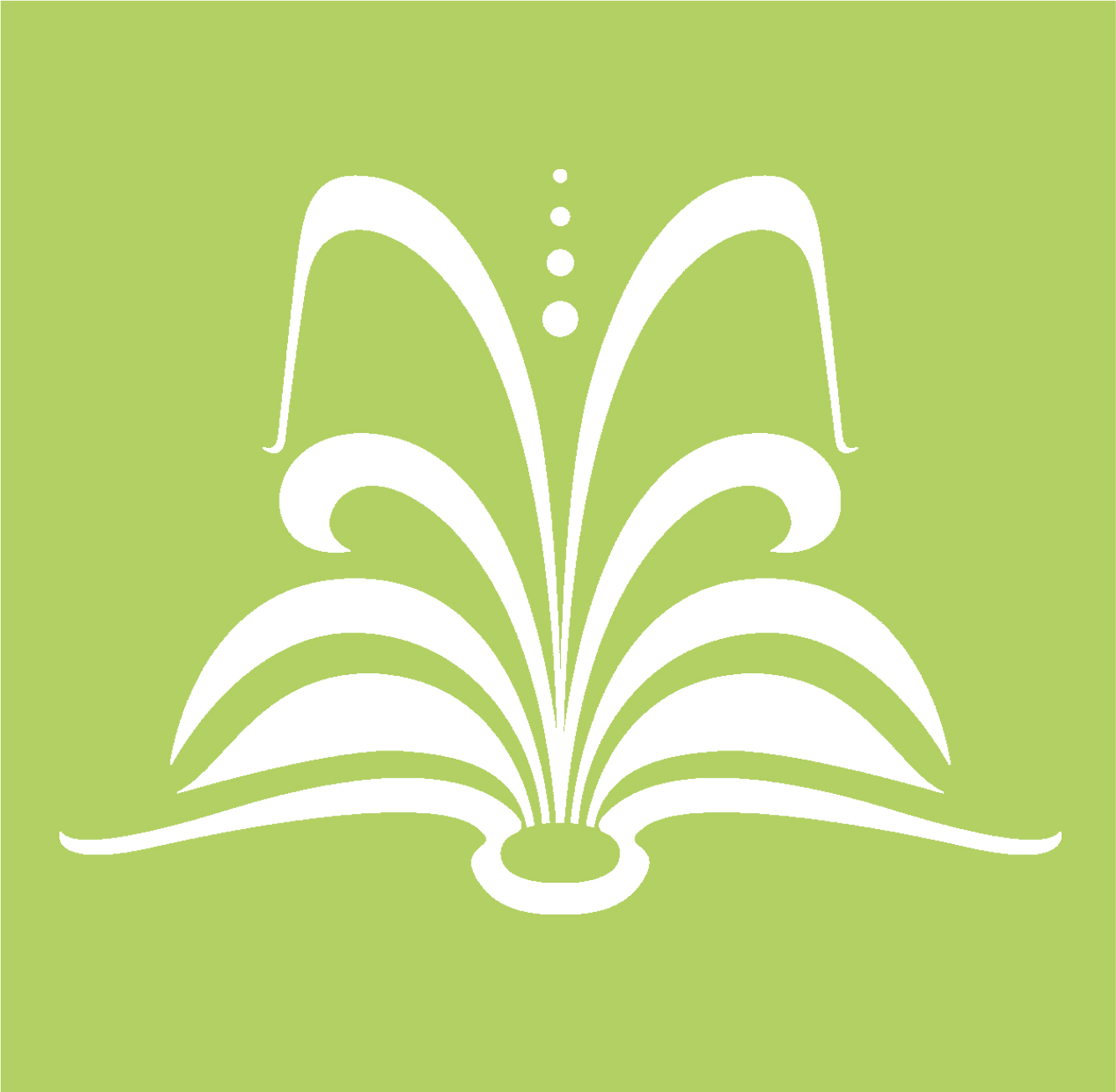by Lisa Di Tommaso | Nov 17, 2022 | Blog
The library is undertaking a mammoth exercise to digitise it’s library card index catalogue, and convert it into a searchable online resource. Our team have recently added the 5,000th record. One of our volunteers, Ruth Baigent, gives us a brilliant insight into what that work involves, and her mixed feelings on taking it on!
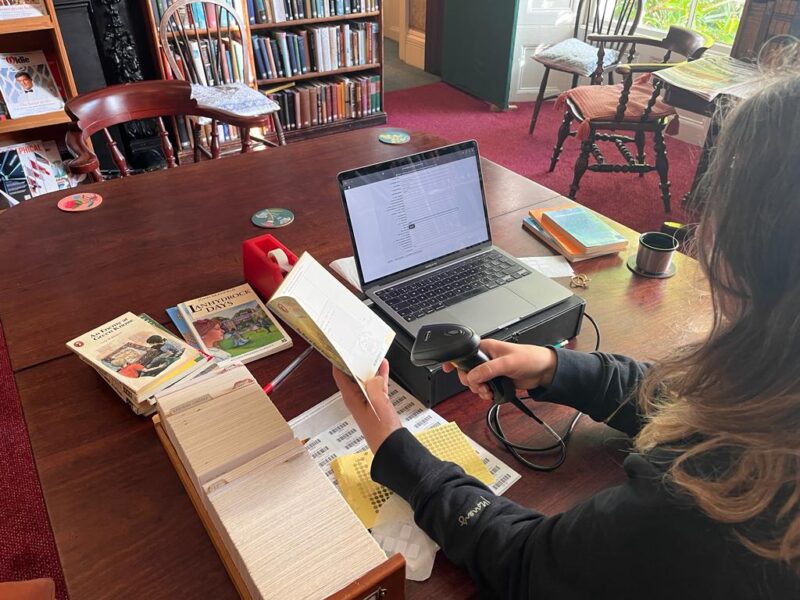
Ruth at work, with the index card catalogue to her left
Cataloguing for Morrab Library means scanning barcodes and checking and entering information, such as publisher details about each book and its library location, onto the new library database, the KOHA library system. We add a barcode sticker to the book with its library number, and each book gets a little gold sticker to indicate that it has been “KOHA-ed”. We started with the library’s various Fiction collections, and I am currently working through Children’s Fiction. I’ve been involved from early days, and we are now past the 5000 book target, with a huge quantity of Non-Fiction volumes to tackle next! There is a small team of us, and we usually work alone, quietly, at different times, and, though there are plans to have a get together at some point, there are still a few of us that have not met yet.
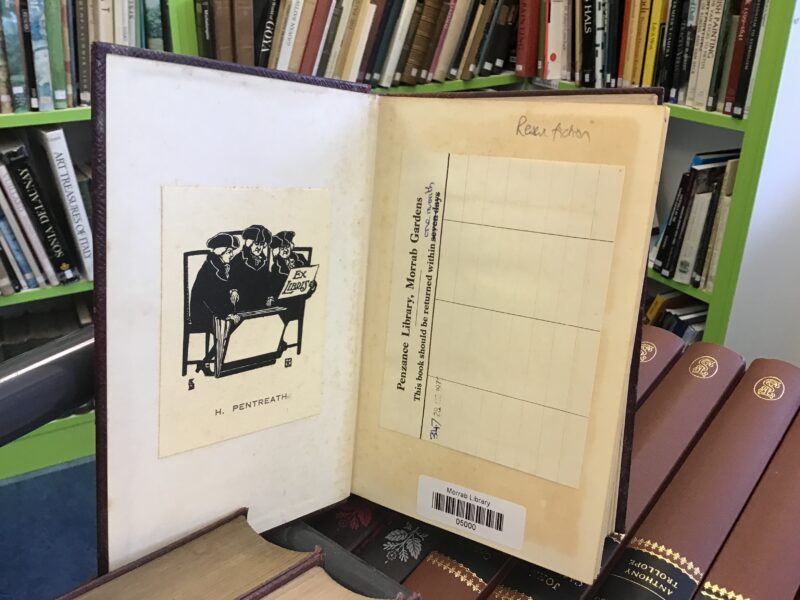
Number 5000!
The library is a tranquil and peaceful place to work. The atmosphere is calm, and it is good to be surrounded by the old timbers, wall to wall books, spacious rooms, and large windows overlooking the eucalyptus trees and other beautiful plants in the sub-tropical Morrab Gardens. I first joined the library when I was about 23, and I have to say it hasn’t changed much over the two decades since, and all changes, such as the library extension, have been unobtrusive.
We all love books, of course, and we all love the old card system the library has in place too. I feel traitorous in some ways, adding the books to a computer database which will supersede the cards and card catalogues, the old pockets and date stamps which libraries just don’t use any more (although I hope Morrab Library will keep up with the date stamps!). The old ways of the public library have changed quite rapidly over the last 20-30 years, but I remember them from my school days, for instance, when we all joined a waiting list for “Are You There God, It’s Me, Margaret?” by Judy Blume. I waited for weeks and weeks, my name added to the long list on a piece of paper held by the librarian. The book would come in, and the next person on the list was notified. The book was stamped and the ticket placed in our little ticket pouch. It was so exciting! That was at a time when everyone said “shush!” when someone spoke and libraries were spaces for peace rather than community. Morrab Library does integrate both, though. Peace is respected, and there is a vibrant community at the same time.
Hopefully introducing the virtual catalogue will be equally unobtrusive, without losing the “life” of the systems. A virtual catalogue means we are able to search for books, to see where they are: are they on the shelves, have they been taken out, have they been reserved, are they off the shelves for conservation? How long have they been taken out for? Are they coming back? These are all important questions! Questions which can be answered very easily when we use a database. So I do see the point. But the card catalogues are so lovely, nothing will truly replace them.
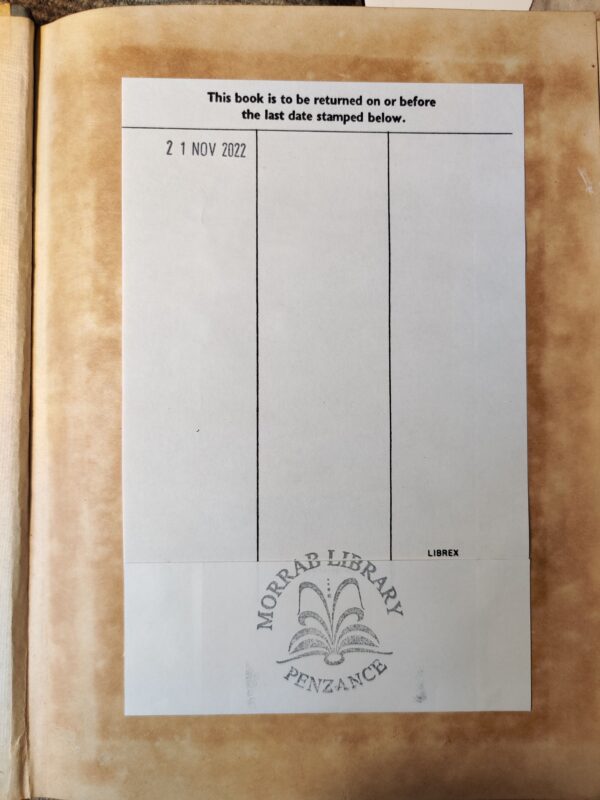 As I’m working, I love looking at the books and seeing when they were taken out, the long lists of dates due back – each date speaks to me of the person who took that book out. It is a beautiful community which I feel a part of. Sometimes, there is a completely blank list of dates. Some books have clearly never been taken out, or never read. I love these books even more, and long to read them. I’d like to start up a children’s book reading club, where we pick these books and read them each week but I wonder if the children wouldn’t be interested in the mysterious unselected books which I’m attracted to!
As I’m working, I love looking at the books and seeing when they were taken out, the long lists of dates due back – each date speaks to me of the person who took that book out. It is a beautiful community which I feel a part of. Sometimes, there is a completely blank list of dates. Some books have clearly never been taken out, or never read. I love these books even more, and long to read them. I’d like to start up a children’s book reading club, where we pick these books and read them each week but I wonder if the children wouldn’t be interested in the mysterious unselected books which I’m attracted to!
The books I love are those promising a magical story of nature and mystery, scattered with wood block prints, and detailed pictures relating to the story, even if obliquely! As a child, I would stare at prints such as these for hours, before TV really became a big feature in my life. Staring at these pictures as I read, I’d notice that oftentimes, the picture didn’t relate to the story — for instance, the story would say the girl was dressed one way, and she would be dressed quite differently in the picture — and I would wonder at how the picture came to be that way… The mysteries of the publishing industry and illustration commissioning were filled with deeper meaning for me… the how? and why? weren’t questions I expected (or wanted) mundane answers to. I simply dwelled in the richness of the mystery of these strange discrepancies. These were things done by other people and understanding eluded me, the mysterious world of Adults described so well by Antoine de Saint-Exupéry in “Le Petit Prince.” Though I have more answers now, I try to hold on to the mystery, and I remember it so well when I am amongst those children’s books, like the ones I used to surround myself with as a child.
Sometimes it is difficult to put the barcode sticker onto the page, as it feels like vandalism, but I also know that it’s nice to find books where a child has drawn or that have notes of dedication, or a bookmark, because it’s nice to think of those who were there before us. The Morrab stamps and stickers thus become part of the book’s history, and add to the interest, rather than detract from it. We will be history ourselves, one day, I hope.
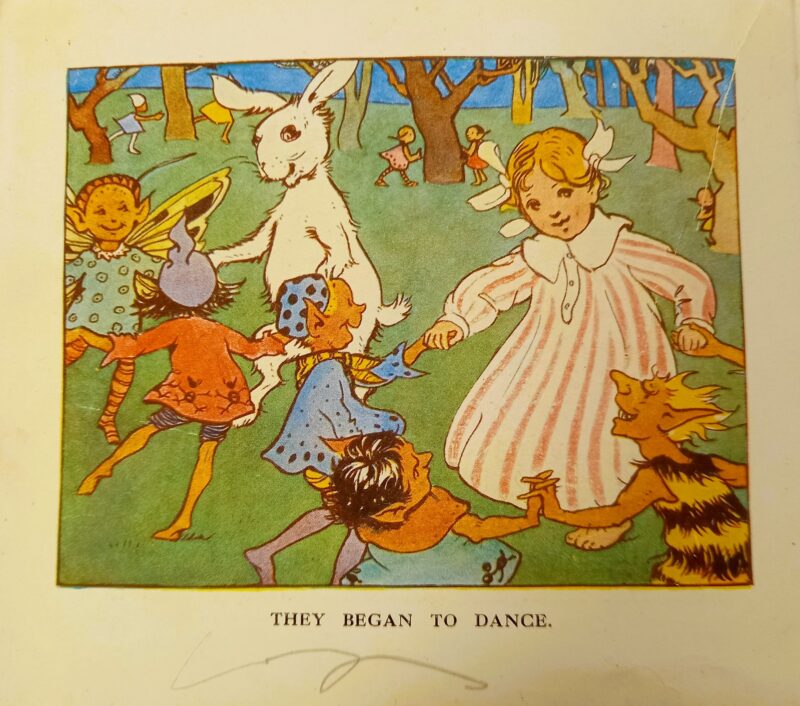
A page from ‘The Adventures of Mary Barbara’ by Angusine MacGregor and May Byron (date unknown)
There are some ancient books from the turn of the 20th century with no publisher information on them, hinting at a time when books were just books, and there were few enough of them that we didn’t need to know who published them, especially if we were children. It’s so vastly different from today, when book publication can feel like consumerism gone mad.
by Lisa Di Tommaso | Jul 20, 2022 | Blog
Many of you will be familiar with the concept of ‘twinned towns’. Twinning became popular in Great Britain after the Second World War, in the belief that building links and exchanges between individual towns and cities would bring reconciliation and prosperity after years of conflict. Twinning Associations aim to promote international friendship and understanding.
Penzance is twinned with four different towns throughout the world – Bendigo, Australia; Cuxhaven, Germany; Nevada City, California, and Concarneau, Brittany. There is a separate twinning association for each twin town. Their work is dedicated to helping their schools, sporting organisations, clubs, and other groups to forge links with those in our twin towns.
After a delayed start due to the pandemic, Morrab Library and the Penzance Concarneau Twinning Society finally had the opportunity to meet and begin what we hope will be a long and fruitful association. The aim is to forge links between ourselves and the Mediatheque in Concarneau. The Mediatheque, or media library, is the town’s public library, part of a network servicing the region, which provides a variety of both paper and digital services to the area.
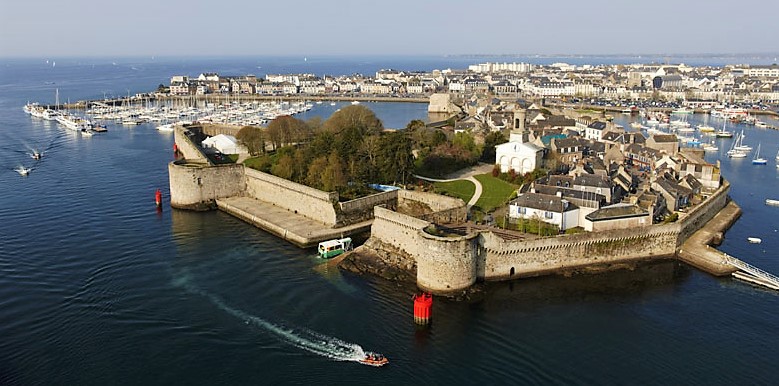
On Sunday June 26th over the Golowan weekend, Penzance welcomed a delegation from the Concarneau Twinning Society, who paid a visit to Morrab Library. They loved the library, its heritage and atmosphere, and spent far longer than planned exploring the building. We exchanged books – donations from us included volumes about Cornwall, popular fiction and children’s books all in English, and they presented a wonderful selection of French language titles. These will be catalogued into our collections in due course and available for loan, and identified by the special bookplate made by the Twinning Society. We were also given some lovely maps and guides to Concarneau, so if anyone is planning a holiday in Brittany, drop in for some information!
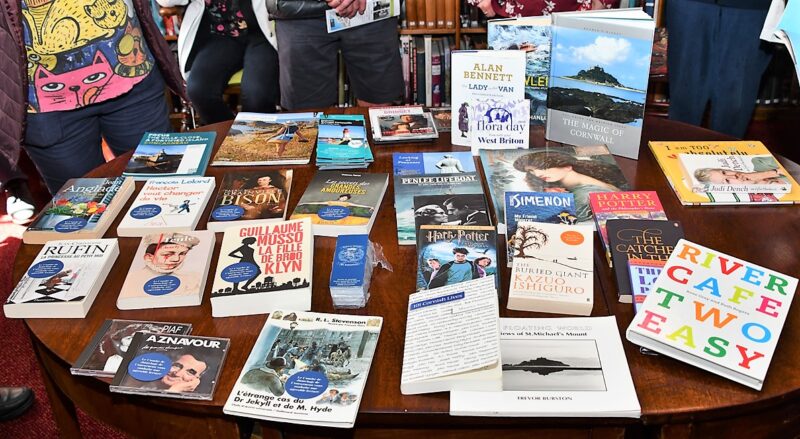
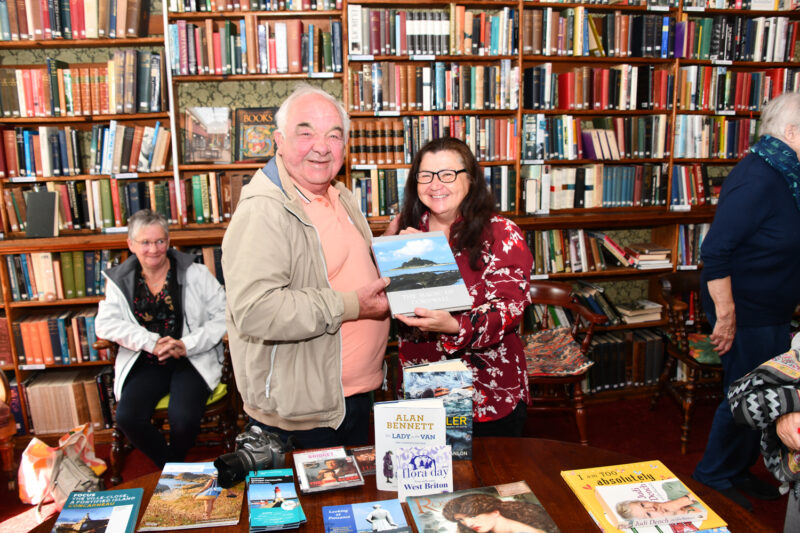
The library looks forward to future collaboration with the Concarneau Mediatheque, and the Twinning Society, which may even include a librarian exchange (a certain librarian has her fingers crossed!), alongside sharing more books and information about our beautiful towns.
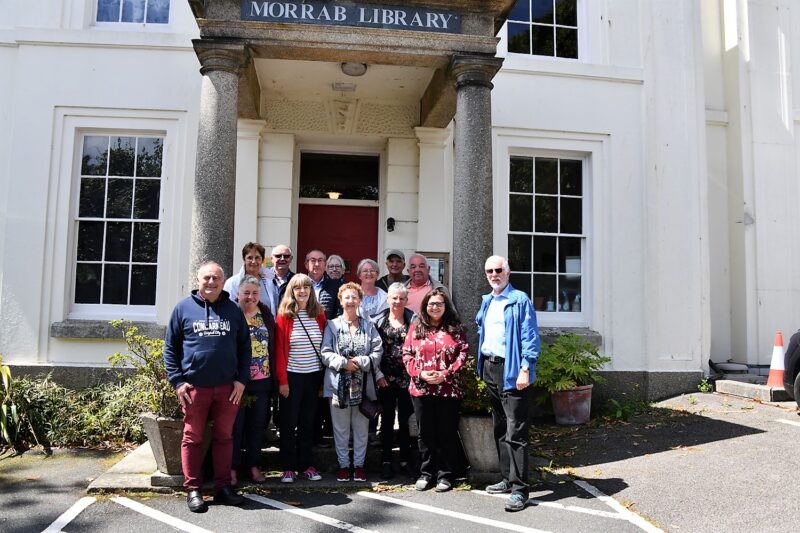
by Lisa Di Tommaso | May 10, 2022 | Blog
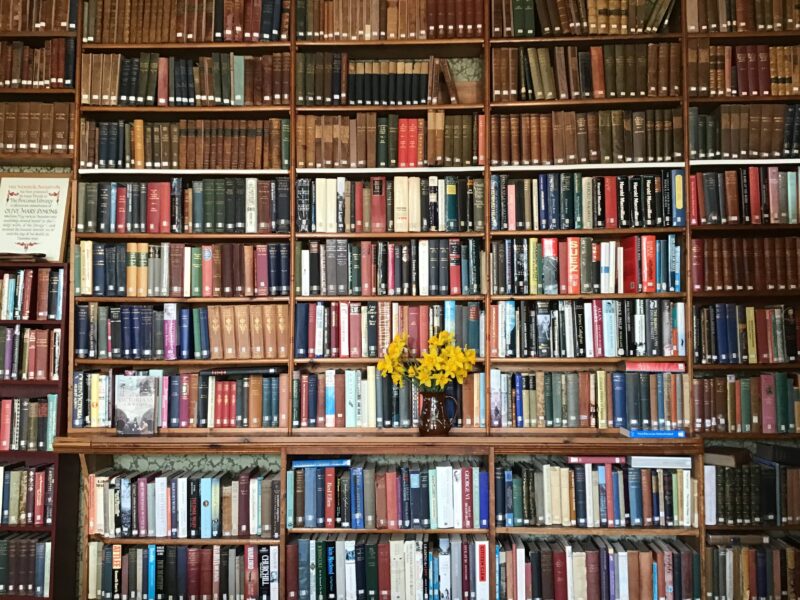
Being a trustee is a voluntary role and we welcome applications from people from all walks of life. It is not necessary for trustees to be expert in all areas of governance but we have to ensure that collectively the Management Committee has the skills and experience to operate effectively and to support the Librarian and her team. Training and support is available through our membership of the National Council for Voluntary Organisations, where our trustees have access to up to date information and a range of learning opportunities.
From time to time we conduct a skills audit of all our trustees and, at the moment, we are especially looking for people with experience in finance, PR, HR, building & construction and IT.
All members of the management Committee:
- Commit to the core vision of the Morrab Library to inspire members of the community through books, archival materials and events within a unique tranquil space for learning, reflection, creation and making new connections;
- Contribute their skills and expertise to the Management Committee’s collective decision making;
- Positively promote the Morrab Library and act as an advocate for the organisation;
- Support the Library’s income generation initiatives including the search for external funding;
- Accept the legal duties and responsibility of trusteeship;
- Devote the necessary time to the role, including attending Zoom and face to face meetings, supporting the Librarian and, on occasion, attending events.
The trustees meet on the first Tuesday of every month either by Zoom or in person. Working groups are occasionally formed for specific projects and meet on an ad-hoc basis.
If you are interested in joining our team we would very much like to hear from you. Please email our Secretary, Paget MacDonald at secretary@morrablibrary.org.uk if you would like to find out more about us, let us know about your skills, and why you are interested in joining us.
Best wishes from the Management Committee at Morrab Library
by Lisa Di Tommaso | Mar 12, 2022 | Blog
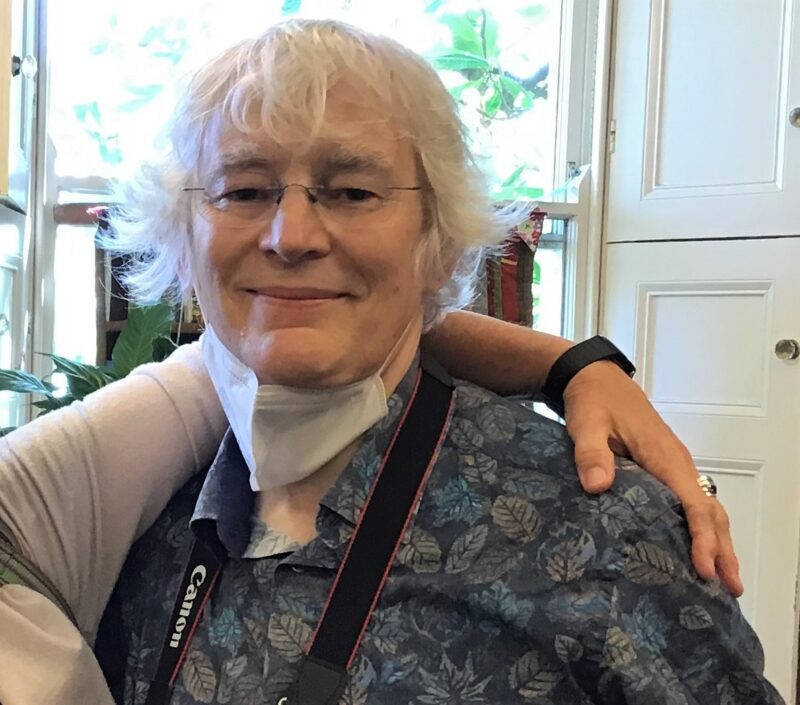
It is with the saddest of hearts that we need to share the news that our much-loved life member, volunteer and former Trustee, Stephen Clark, passed away on the 2nd of March.
It is no exaggeration to say that Steve loved the Morrab Library. Having joined in 2018, he threw himself in at the deep end, volunteering for reception desk duty not once, but twice a week, where he welcomed visitors, suggested all sorts of interesting book titles to borrowers, and practised his language skills with particular members too.
Steve soon became a member of the library’s Book Selection Committee where he made brilliant suggestions to enhance the library’s collections, particularly in the areas of science and poetry. He stuck to his guns when the rest of the Committee occasionally questioned any of his choices, delivering eloquent and passionate arguments in their favour, and more times than not, winning.
When the library started a new Poetry Group, a fortnightly opportunity for members to discuss a different poet, Steve was an active participant. Much to the joy of his colleagues at these meetings, Steve arrived with a freshly baked cake, it’s flavour based on the nationality of the poet who was being discussed that week. Steve’s cakes also made regular appearances at library events – our fairs and fetes, Christmas parties and more. While all of these cakes were delicious, his Simnel cake was out of this world!
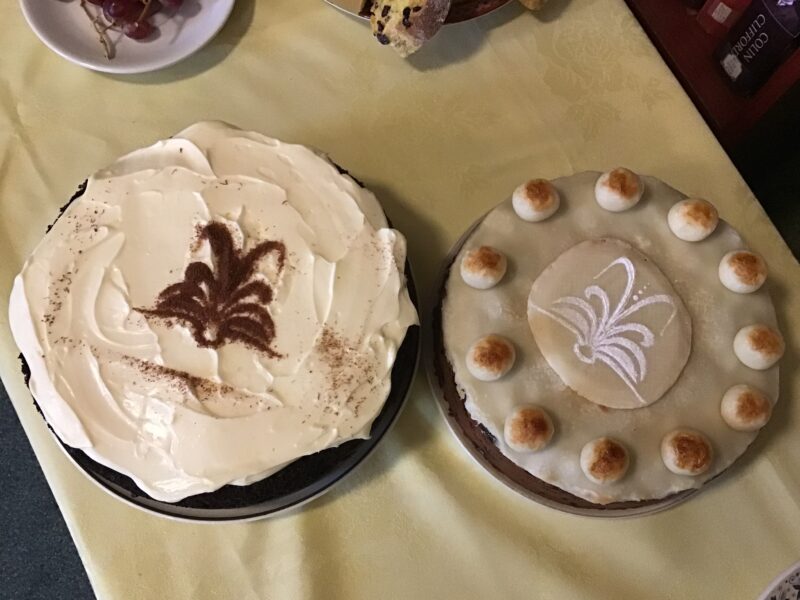
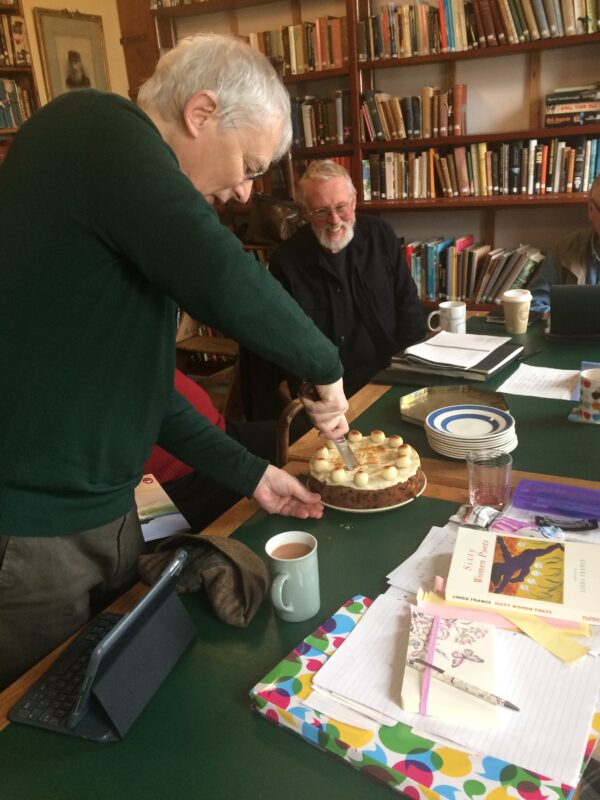
Many who attended the Library’s Christmas Party in 2019 will remember Steve’s acting skills too, when he played the role of former Library President, J A Hamilton, in the performance of Camidge & Stringer’s ‘Remembering the Morrab Library in 1919’.
Importantly, Steve’s love for the library ultimately manifested itself when he joined the Management Committee. In his own words:
“When you are in love, you want to do things for the object of your desire. So when, five months after joining the library, I was asked to join that mysterious body, the Management Trustee Committee, as Honorary Secretary I accepted. It has to be said that I agreed with some trepidation at first; I was still very starry-eyed about the Morrab and really had no idea of the responsibilities of the secretary, still less what the Management Trustees actually did. Being a Trustee is a privilege and a responsibility. It is like being behind the scenes with the production team in a theatre. We are there to keep the building in good shape, from the state of the roof to making sure that the plugs and fire alarms are tested, and the Wi-Fi system works. We appoint the staff and work with them to fulfil the current needs and future plans of the library. Overall, it’s been a fascinating and an immensely rewarding experience to feel that I have contributed something to not only keeping the Morrab going but also to shaping its future. I’m still in love.”
Finally, we’d like to share Steve’s reflections on his favourite room in the library – the Hedgeland. Perhaps those who knew Steve may like to pause and reflect when visiting here, and remember him fondly:
“I have a particular affection for the Hedgeland room. I feel it doesn’t have to stand up to the claims that the neighbouring literature room has for the best view and the most comfortable chair. It’s as if the attention is more inward looking to the room’s true purpose – the books and not the distracting view. And what books! The range of subjects in this room is astonishing: from espionage, sociology, through fairy tales to naval history, games, theatre, music. The list could go on for ever. If your work doesn’t hold your attention or you need some distraction, just browse the wondrous shelves. I love the shape of the room too, unlike the literature room you are not there immediately; you pass through the door but there is a short passage giving a sense of mystery and then a surprise as the whole room is laid out before you. “
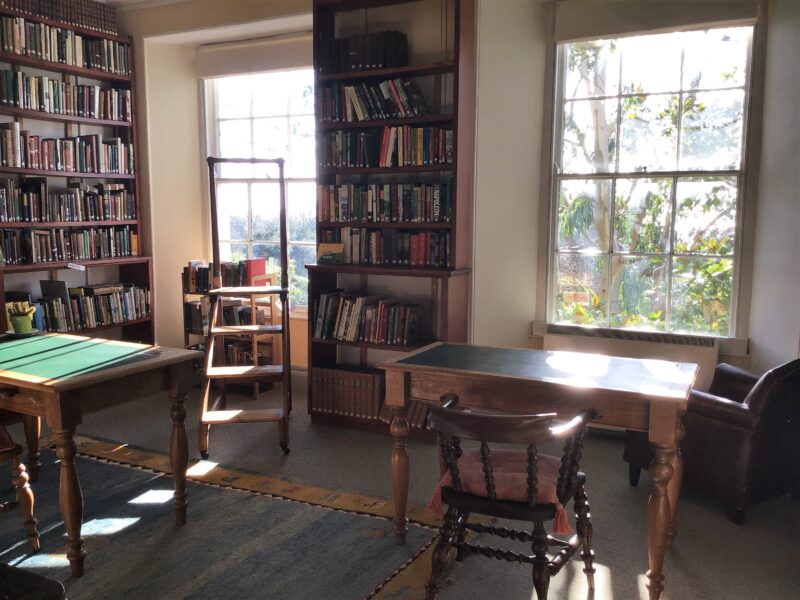
Steve was a generous and warm friend to so many of us at Morrab Library. His passion and enthusiasm was always evident, and he shared this with all he came into contact with. He had a gentle and ironic sense of humour. He was a true renaissance man – sharing with us his scientific knowledge, and his poetry writing, as well as his profound knowledge and love of literature. And cricket too.
Steve will be sorely missed by so many of us, but we know that a part of Steve’s heart will always remain here in Morrab Library, and his legacy will endure.
by Lisa Di Tommaso | Feb 9, 2022 | Blog
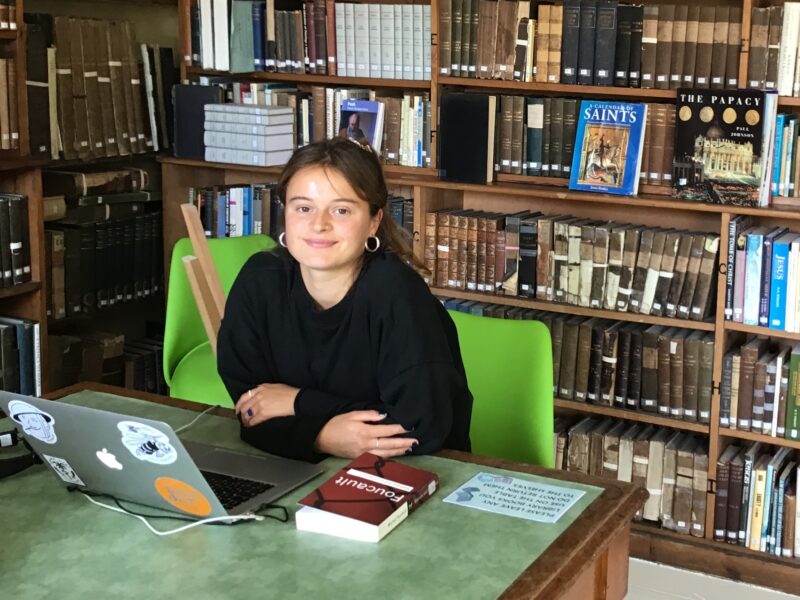
In the summer of 2021, Morrab Library hosted Eliza McCarthy, an intern from the Penryn campus of Exeter University who funded Eliza’s project through their Access to Internships programme. Eliza is an English Literature student and spent her time exploring the library’s archive relating to John Thomas Blight (1835-1911), Cornish archaeologist and artist. Blight found himself incarcerated in the Bodmin Mental Asylum, and Eliza’s paper explores Blight’s life and the wider issues around the care of people with mental health problems at that time.
It was a delight to host Eliza, and the results of her hard work are evident in the paper she wrote, which is reproduced here, and will be added to the JT Blight Archive collection for future researchers.


 As I’m working, I love looking at the books and seeing when they were taken out, the long lists of dates due back – each date speaks to me of the person who took that book out. It is a beautiful community which I feel a part of. Sometimes, there is a completely blank list of dates. Some books have clearly never been taken out, or never read. I love these books even more, and long to read them. I’d like to start up a children’s book reading club, where we pick these books and read them each week but I wonder if the children wouldn’t be interested in the mysterious unselected books which I’m attracted to!
As I’m working, I love looking at the books and seeing when they were taken out, the long lists of dates due back – each date speaks to me of the person who took that book out. It is a beautiful community which I feel a part of. Sometimes, there is a completely blank list of dates. Some books have clearly never been taken out, or never read. I love these books even more, and long to read them. I’d like to start up a children’s book reading club, where we pick these books and read them each week but I wonder if the children wouldn’t be interested in the mysterious unselected books which I’m attracted to! 
